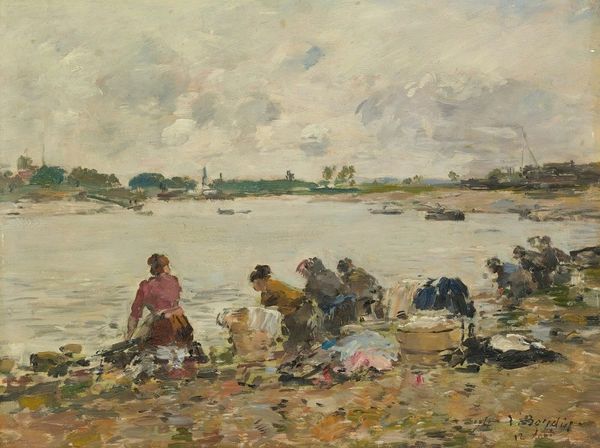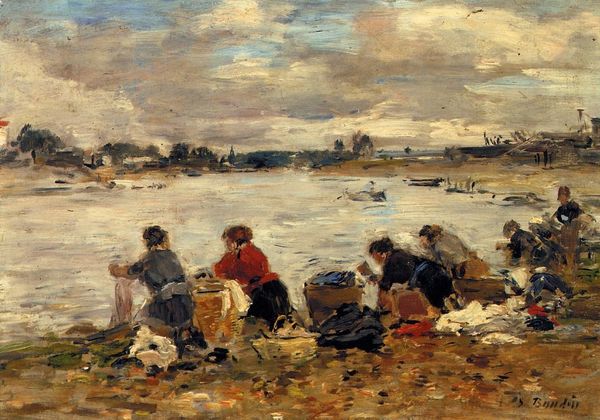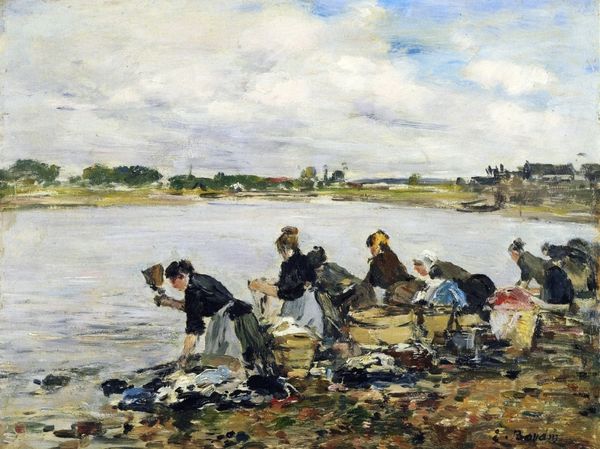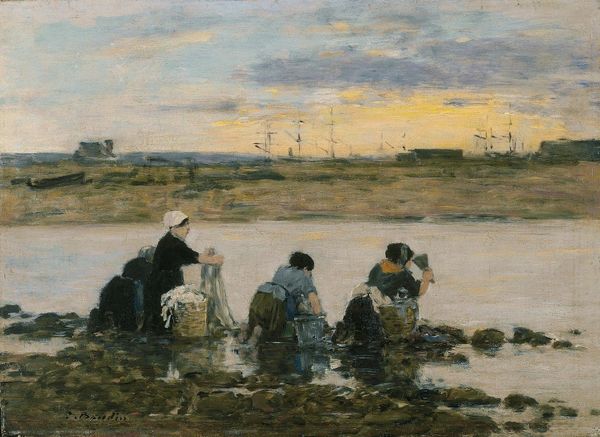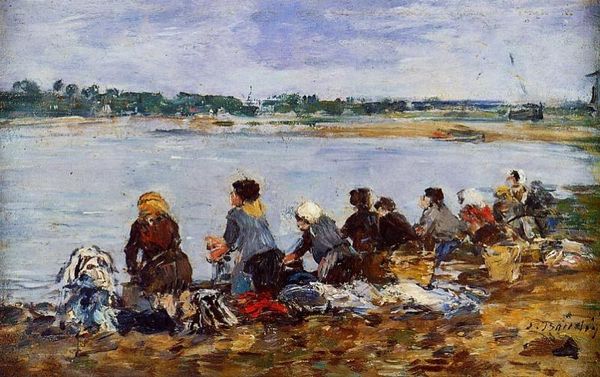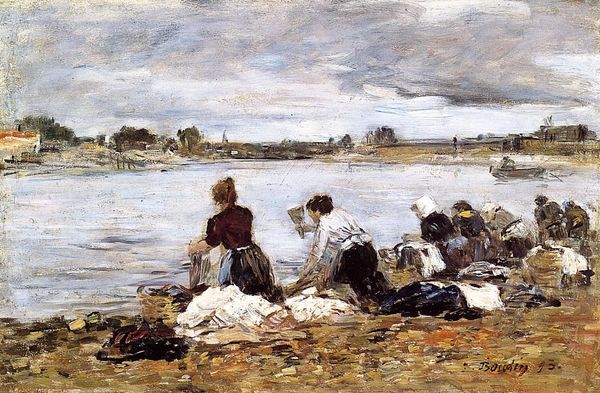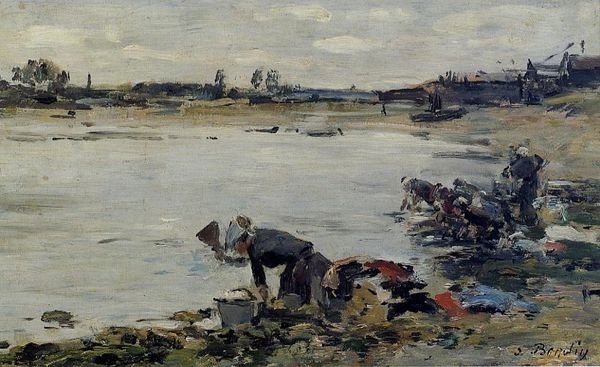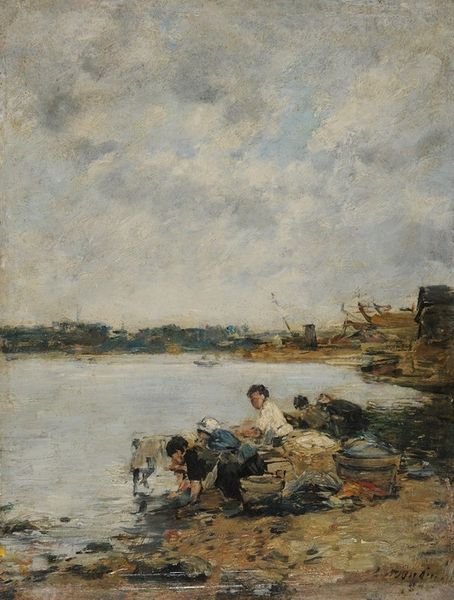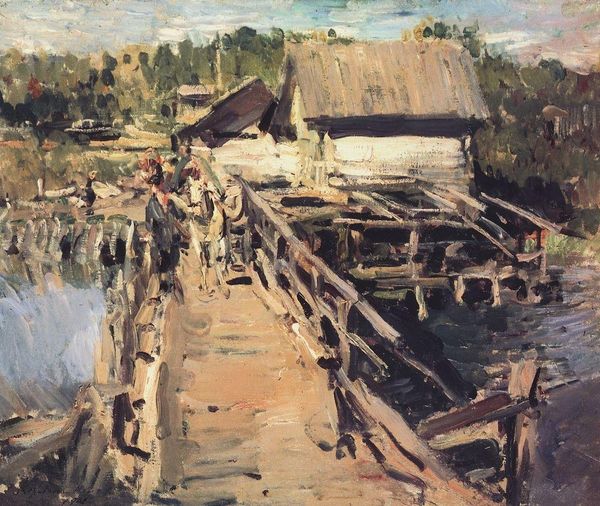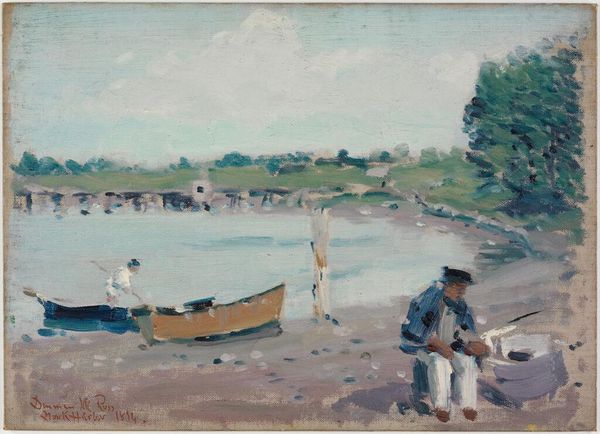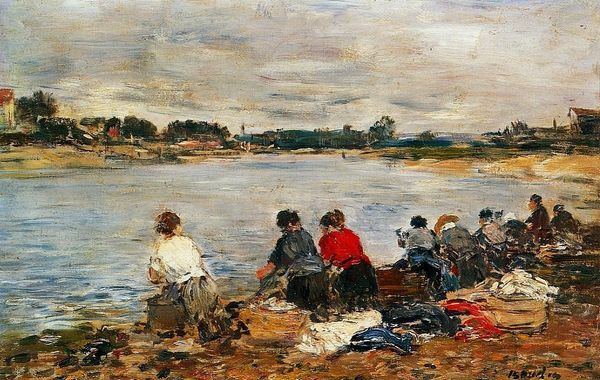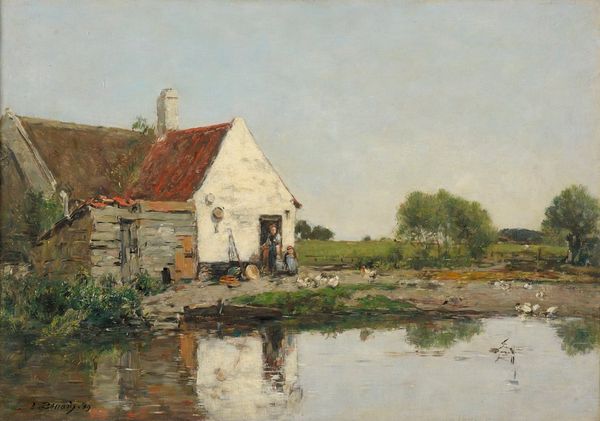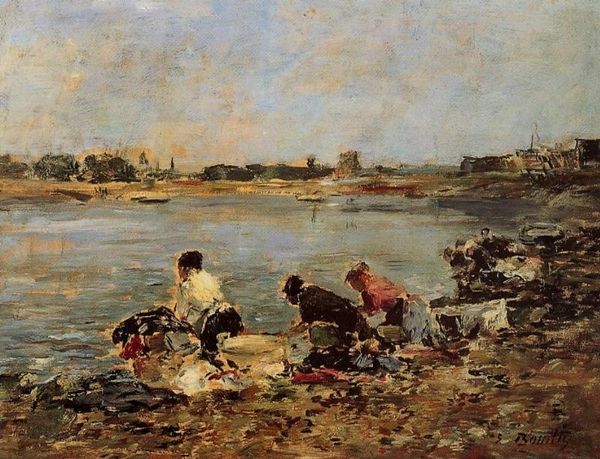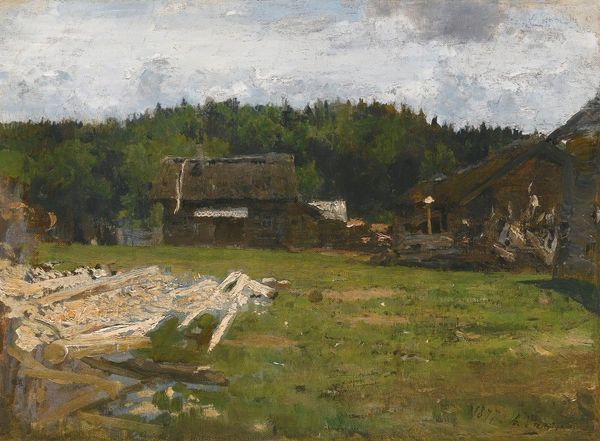
plein-air, oil-paint
#
impressionism
#
plein-air
#
oil-paint
#
landscape
#
impressionist landscape
#
figuration
#
oil painting
#
seascape
#
painterly
#
cityscape
#
genre-painting
Copyright: Public Domain: Artvee
Eugène Boudin’s “Washerwomen at the Edge of the Pond” is a painting that captures a slice of 19th-century rural life, likely made in France. It depicts women engaged in the laborious task of washing clothes by a pond, a common scene in a time before modern conveniences. What makes this painting interesting from a social history perspective is how it subtly comments on the lives of working-class women. Boudin was known for his seascapes and landscapes, and in this work, he turns his attention to the working class, perhaps reflecting a growing interest in social realism. The women are shown in their everyday labor, their figures bent and absorbed in the work. This is not idealized labor; there is nothing romanticized here. Boudin's choice of subject and style challenges the art institutions of his time, which often favored more 'elevated' subjects, such as portraits of the wealthy or historical scenes. To understand the full context of this painting, one could look at contemporary social surveys and records of rural life.
Comments
No comments
Be the first to comment and join the conversation on the ultimate creative platform.
